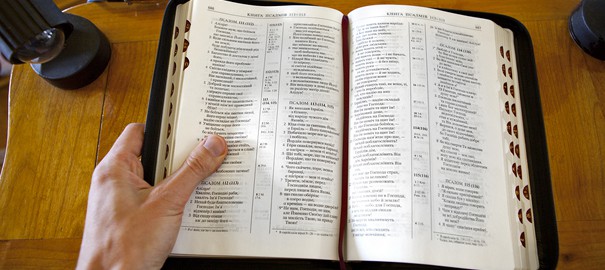When a United States President enters office, there is a lot of press given to his first 100 days agenda. The reason for this is everyone understands the early days of the new administration will set the pace for the entire four years of the President’s tenure. The issues that take priority, the style of the approach and the degree of communication exhibited are all watched carefully by the press, political party members and the population at large. People quickly develop their opinions about the President and determine at least an initial, yet strong sense of how they will respond to the leadership exhibited.
While a new Executive Pastor certainly receives less intense scrutiny than the President of the United States, there is, nevertheless, a “sizing up” process that takes place in the early days of his/her tenure. This is particularly true for the first Executive Pastor in a church that has previously functioned without someone in that role. If a new Executive Pastor is aware of this reality and uses the time with intentionality, it can make a big difference in the months that follow.
Here are a few suggestions for first 100 days focus points:
SP Relationship Development
It almost goes without saying that your most important relationship in the work environment is the Senior Pastor. Hopefully during the hiring process you determined that the two of you are compatible, that you’re on the same page regarding hopes for the church and in agreement on the concept of the SP/XP partnership. Even if you’ve done that homework, you will both have to be intentional to establish a healthy, positive and communicative relationship early on. It won’t just happen! It’s important to plan some major blocks of time together during your first month. This could be several half days, a couple of full days, or, even better, a two-day retreat together.
This time should be spent talking about the big picture issues and hopes for the church. Talk about vision and philosophy of ministry. Talk about the staff team culture you want to establish. Talk about how you hope the church will make strides forward. Talk about your personal styles of ministry, communication and each other’s expectations. Talk about how you each tend to handle conflict and how you can balance and complement one another. Try to stay away from specific ministry tasks/personnel conversations during these major blocks of time. Go loaded with tons of questions that will help you get to really know this person who will be your ministry partner for years to come. Above all, liberally sprinkle times of prayer into these blocks of time.
Immediately build into your weekly schedules a regular meeting time for the two of you. This should be inviolable and probably last 1½ hours. This is the right context to work on the ministry detail issues. What staff concerns does the SP have? Where are the strengths and weaknesses in the organization? How can you take some stuff off his plate that he hates doing or things that have been hanging over his head for a long time? Let him know what your priority list is and ask if this matches his hopes. Talk about how the staff meetings are going and agree together on who’s going to be responsible for what aspects of the meetings. Don’t be afraid to suggest changes and try different things during your first couple of months. If there are things that concern you or are unclear to you, establish the pattern of asking questions until you really understand.
Agree together on how you will handle the “as needed” communication during the rest of the week. Will you have direct access to each other—no matter what? Is an email or a phone call the best way to touch base or do you prefer “popping in” to each other’s offices? While these things seem small, they can become serious annoyances if you haven’t agreed on them.
And lastly, do your best to find some ways to do some fun things together during your first 100 days. Invite the SP and his family over for a cookout. Go to a ball game or a movie together. While everyone is busy, the two of you should give it your best shot to get some pure relationship-building time together … and include your families, if at all possible.
Intentional Listening
If you can establish a listening posture early in your tenure, it will serve you well for the rest of your years at the church. In your first 100 days, you should engage in “targeted” listening. Decide who would be the most important people to hear from and set up appointments right away.
Develop a set of questions that will give you insight into people’s perspectives on the strengths and weaknesses of the church. What do they see as the challenges and opportunities that lie ahead? What bottlenecks keep things from getting done? What do they see as the core DNA of the church? Be sure that your “listening campaign” includes administrative/clerical people from the paid team (they know what it really takes to get things done!) as well as key lay leaders from various ministries.
Prioritized Relationship Development
Agree with your Senior Pastor on a list of your “top 20” key relationships to build during your first year. This list obviously will include all of your direct reports but should also include some key lay leaders, key influencers and perhaps one or two “high capacity but not very involved” people. By the way, the Senior Pastor should have his own “top 20” list as well.
During your first 100 days, it will be important to spend some blocks of time with your direct reports. During these meetings, you can get clarity about their ministry area’s current status and goals—but relationship building is probably the most important aspect of these times. Develop a plan for the rest of your “top 20” and begin setting up appointments to make initial contacts.
Organizational Assessment
All organizations develop bad habits and inefficiencies over time. Usually the people working within and around the organization know about these things but feel powerless to do anything about them. You have a fresh set of eyes and ears during your first 100 days; you bring a sense of renewed hope that things could really change. But you need to be wise and discerning about the right things to tinker with in these early days.
Doing an organizational assessment is a great way to get your bearings on this issue. One way to do this is to design a web-based survey that all paid staff, key non-paid ministry area leaders and governing board members can participate in. The survey should be anonymous; its focus should be on clarity of/alignment with the vision, effectiveness of support services, efficiency of operations and identification of bottlenecks in the system. This is one place where some outside help can be beneficial. A third party can safely identify organizational culture issues and name the bottlenecks—without you having to become the “bad guy.”
The objective of this assessment is to identify the “low hanging fruit” that you can deal with quickly and effectively. If you can make some changes that make life better for everyone during your first 100 days, you will gain capital to use later on the tougher issues of change.
Communicate with the Church
Much of your energy in the first 100 days will be focused “inside” the organization. You’ll be working with staff people, figuring out how things work and developing an understanding of the organizational dynamics. The common tendency is to assume that the people of the church know what you’re doing and how important it is. The fact is that most people don’t understand what an Executive Pastor does.
At the same time, people do care a great deal about the things that you are impacting. It’s wise to find ways to communicate with the congregation about your activities and plans during these early days. Perhaps an article or two in the church newsletter, bulletin or on the website would be appropriate.
You might consider an open forum following each weekend service on one of the weekends during your first 100 days. The forum would be available to anyone who would like to find out about the church’s current status regarding finances, growth trends, your plans to engage in strategic planning, the organizational assessment and its purpose, etc. This is a context where you can hear people’s hearts for the church and can share your own hopes and desires for the church. Absent a crisis, meetings like this will not be well attended. But by offering the a meeting, you are setting a tone of open communication and willingness to listen.
However you choose to do it, communicating with the congregation during your early days will say something positive about who you are and what your leadership style will be. You’ll want to be on the same page as your Senior Pastor with this communication. You might even write the article(s) together or participate in the open forums together, if your schedules allow.
Lead with a Spiritual Focus
This is no surprise to anyone. After all, this is the church, right? Nevertheless, it’s an important reminder that tuning in to God’s desire for the church is your most important task. The tone that you set for your ministry in these early days will stick with you for some time. Make sure prayer is consistent and meaningful in your meetings with people. Make sure the paid ministry team is getting Sabbath time. Ask people how they’re doing with God before asking about their work. Make sure they know that their spiritual health and development is their first order of business. If spiritual health is not at the core, your team might work really hard but not much of ultimate value will happen.
Your first 100 days as the Executive Pastor are important days! Make the most of them through intentionality and purpose!










